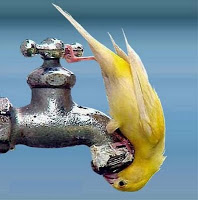 One of the major problems we struggle with in haemodialysis patients is excess, volume, inter-dialytic weight gain and ultrafiltration. Despite constant reminders by nursing staff, physicians and nutritionists, patients seem to find it extremely hard to restrict their fluid intake to what we’d like it to be.
One of the major problems we struggle with in haemodialysis patients is excess, volume, inter-dialytic weight gain and ultrafiltration. Despite constant reminders by nursing staff, physicians and nutritionists, patients seem to find it extremely hard to restrict their fluid intake to what we’d like it to be.
The reasons for this are variable and include social and cultural differences, habit, psychological diagnoses, medications and likely the very dialysis procedure itself by means of salt-loading. One of the clinical manifestations that is important to differentiate from thirst (a central mechanism driven by tonicity) is xerostomia (dry-mouth).
Xerostomia has a broad differential of possible causes and includes medications (particularly those with anti-cholinergic effects), anxiety, radiation therapy, connective tissue disease and rarely, autonomic disease. It is important to examine the long list of medications prescribed to our patients for possible culprits contributing to dry mouth and the excessive fluid intake that results from it.
I came across a small study of 43 HD patients followed for two years in Holland (not the most robust study, but interesting nonetheless). Unstimulated and chewing-stimulated 5 minute saliva collections were performed at baseline and at 2 years, along with a formal xerostomia inventory and thirst questionnaires. Then a formal dental examination was performed on each patient examining for decay, oral hygiene and periodontal disease.
Twenty patients were transplanted during follow-up. The most interesting finding was that those who were transplanted experienced an increase in salivary flow rate from 0.3ml/min to 0.44ml/min (p=0.002) and a decrease in thirst score from 10.6 to 8.1 (p=0.02); there were no significant changes over the 2 years for those who remained on dialysis. Also, there were no detectable differences in oral health between the 2 groups and the 2 time-points.
It’s possible that there is something peculiar about the state of ESKD that alters salivation and contributes to the symptom of dry mouth (supported by the observation of improvement after renal transplantation). Perhaps attention to the medication history and trying to distinguish the symptoms of thirst from dry-mouth may help us to help our patients in their ongoing battle with inter-dialytic weight gain.

Thank you for your valuable post. We have decided to share it with our global physician audience at PhysicianNexus.com: http://physiciannexus.com/forum/topics/thirst-and-xerostomia
Jaerou Kim
Team Member
http://www.PhysicianNexus.com
Physicians Comparing Treatments Worldwide
Every single person I know on in-clinic HD has a real problem with thirst. My mother and my aunt both experienced this terrible problem, and the noise of them chomping ice will haunt me forever.
Once I went to home HD 6 days a week, the terrible thirst went away and I was able to control my fluids better. I found that he in-center sodium modeling left me terribly thirsty.